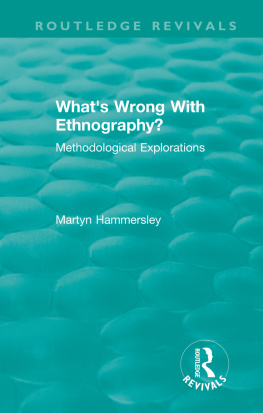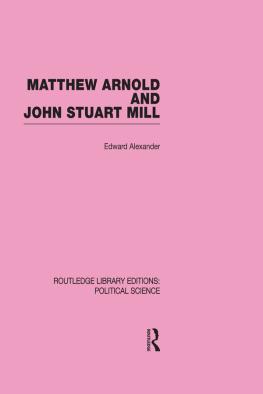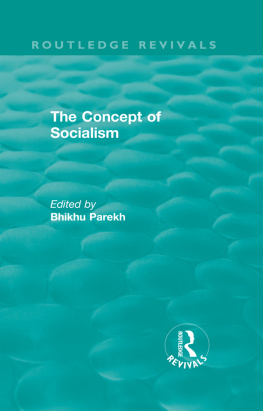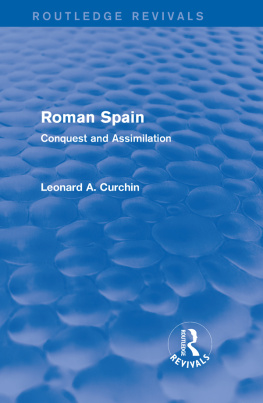Routledge Revivals
Roman Stoicism
Roman Stoicism, first published in 1911, offers an authoritative introduction to this fascinating chapter in the history of Western philosophy, which throughout the 20th century has been rediscovered and rehabilitated among philosophers, theologians and intellectual historians.
Stoicism played a significant part in Roman history via the public figures who were its adherents (Seneca is perhaps the most famous); and, as it became more widely accepted, it assumed the features of a religion. The Stoic approach to physics, the universe, divine providence, ethics, law and humanity are all investigated, as is its diffuse impact upon literature.
The origins of Christianity are also examined. Arnold offers a sympathetic reading of St. Paul in light of Stoicism, and regards the latter as the crucial bridge between Antiquity and Christendom: it allowed a swathe of Pagan intellectuals to join the Church and influenced the development of Christian doctrine, thus making an immense contribution to the bedrock of modern European civilisation.
First published in 1911
Re-issued 1958
by Routledge & Kegan Paul Ltd
This edition first published in 2014 by Routledge
2 Park Square, Milton Park, Abingdon, Oxon, OX14 4RN
and by Routledge
711 Third Avenue, New York, NY 10017
Routledge is an imprint of the Taylor & Francis Group, an informa business
The right of Edward Vernon Arnold to be identified as author of this work has been asserted by him in accordance with sections 77 and 78 of the Copyright, Designs and Patents Act 1988.
All rights reserved. No part of this book may be reprinted or reproduced or utilised in any form or by any electronic, mechanical, or other means, now known or hereafter invented, including photocopying and recording, or in any information storage or retrieval system, without permission in writing from the publishers.
Publisher's Note
The publisher has gone to great lengths to ensure the quality of this reprint but points out that some imperfections in the original copies may be apparent.
Disclaimer
The publisher has made every effort to trace copyright holders and welcomes correspondence from those they have been unable to contact.
ISBN 13: 978-1-138-01603-3 (hbk)
ISBN 13: 978-1-315-79400-6 (ebk)
First Published 1911
Re-issued 1958 by
Routledge & Kegan Paul Ltd.
Broadway House, 68-74 Carter Lane
London, E.C.4
Printed in the USA
Preface
THIS book is the outcome of a course of lectures delivered by me in successive years to Latin Honours students in accordance with the regulations of the University of Wales. It is therefore primarily intended for the assistance of classical students; but it may perhaps appeal in its present form to a somewhat wider circle.
At the time that the book was begun the best systematic exposition of the Stoic philosophy available for English readers was to be found in Prof. E. ZELLER'S Stoics Epicureans and Sceptics, translated by O. J. REICHEL (Longmans, 1892). This work, admirable in detail, is nevertheless somewhat inadequate to the subject, which appeared to its learned author as a mere sequel to the much more important philosophical systems of Plato and Aristotle. Since its first appearance many qualified writers have been inclined to assign a higher rank to Stoicism, amongst whom L. STEIN, A. SCHMEKEL, and HANS von Arnim in the German-speaking countries, and A. C. PEARSON, G. H. RENDALL, and R. D. HICKS in our own, are perhaps most conspicuous.
The view taken in this book corresponds generally to that taken by the writers named. Shortly expressed, it regards Stoicism as the bridge between ancient and modern philosophical thought; a position which appears to be accepted by W. L. DAVIDSON writing on behalf of students of modern philosophy. Mr Hicks and Mr Davidson have recently published works dealing with the Stoic philosophy as a whole; but as neither of these quite covers the ground marked out for this book, I believe that room will be found for a further presentation of the subject.
To the writers named and to many others, my obligations are great, and their extent is generally indicated in the Index. I owe a more intimate debt to Mr A. C. PEARSON and Prof. ALFRED CALDECOTT, who have given me ungrudgingly of their knowledge and counsel during the whole period of the preparation of this book.
The appearance of H. von Arnim's 'Stoicorum veterum fragmenta' made available to me a mass of material from Greek sources, and has (I hope) made this book less imperfect on the side of Greek than it would otherwise have been. For the quotations in the notes from the Greek and the less-known Latin authors I have generally given references to von Arnim's collections, which will doubtless be more accessible to most of my readers than the original writers. These references include those to the fragments of Zeno and Cleanthes, for which von Arnim is in the main indebted to the earlier work of Pearson.
So general a treatment of the subject as is here presented must necessarily leave room for correction and amplification in its various branches, and I trust that I am pointing out to younger students a field in which a rich harvest may yet be gleaned. To such students the appended Bibliography, though necessarily incomplete, may be of use as an introduction to the considerable literature which is available to them.
The concluding chapter makes its appeal not so much to classical students, as such, as to those who are interested in the problem of Christian origins; the further problems of the influence of Stoicism on modern literature and philosophy, though at first included in my programme, I have not ventured to enter upon. But I hope that at least I have been able to show that the interest of classical studies, even as regards Hellenistic philosophy, does not lie wholly in the past.
My sincere thanks are due to the Council of the University College of North Wales for granting me special assistance in my College duties during the Spring term of 1910, in order that I might give more time to this book; to the Syndics of the Cambridge University Press for undertaking its publication; and to Mr Clay and his expert staff for the admirable execution of the printing.
E. VERNON ARNOLD
25 January 1911
Corrigenda et Notanda
In the text the accentuation of Greek words should be corrected as follows:
P. 117, 1. 10,

P. 239, 1.6, . P. 423, 1. 16.

For the quotations in the notes from Greek writers, more precise references will usually be found in the sections named of von Arnim's Stoicorum veterum fragmenta. In addition the following amplifications or corrections are needed:
P. 105, n. 44; Clem. Strom, ii 21, 129. P. 133, n. 38; Nem. nat. hom, vi 13. P. 142, n. 86; Sext. math, vii 184. P. 158, n. 17; Simp. Arist. cat. p. 269, 14 K; Cens. fr. 1, 1. P. 159, n. 20; Simp. Arist. cat. p. 350, 16 K. P. 160, n. 30; for the word is now read, making the quotation inapplicable. P. 161, n. 133; add the words


 P. 239, 1.6, . P. 423, 1. 16.
P. 239, 1.6, . P. 423, 1. 16. 














